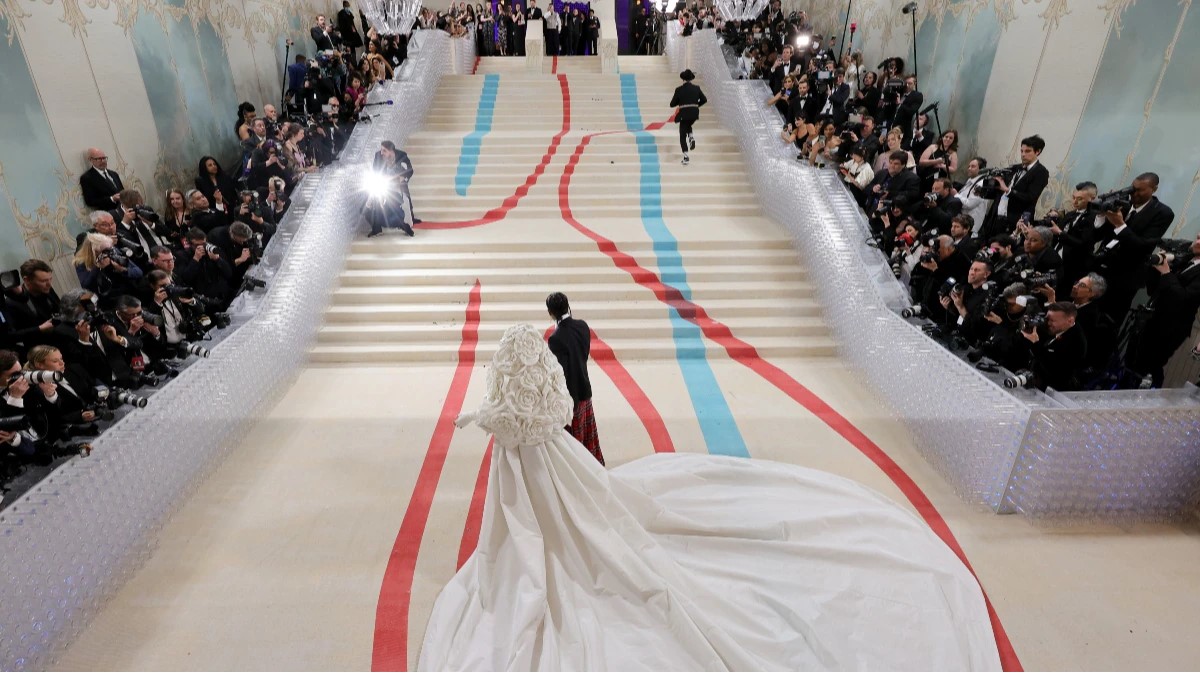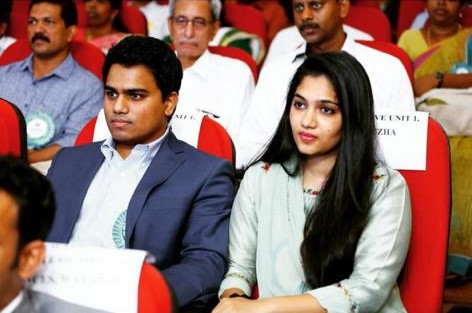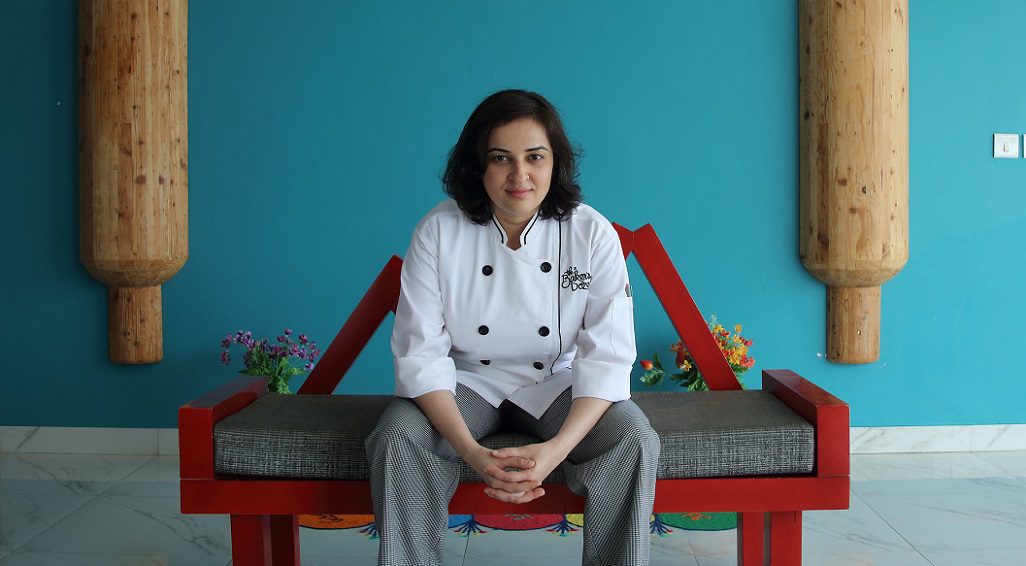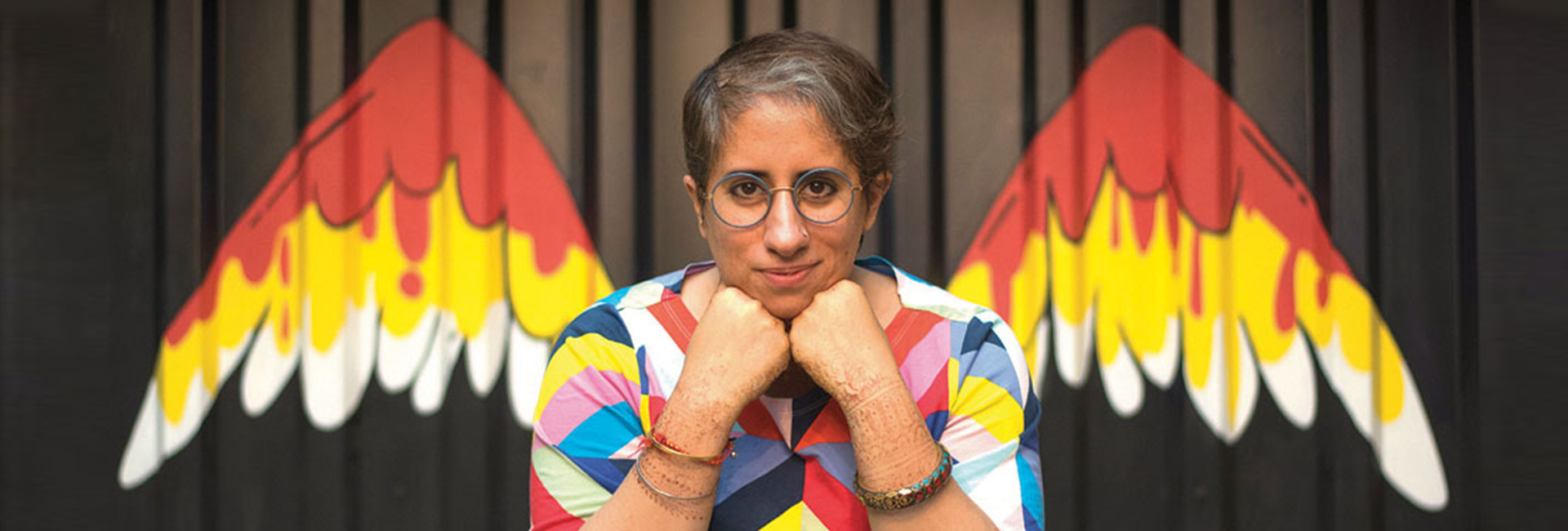Amidst the glamour of the Met Gala 2023, one Indian brand’s contribution quietly stole the limelight—the opulent, cream-coloured runway carpet stood testament to Kerala artisanship – a sustainable, custom-designed and hand-painted tribute to fashion icon Karl Lagerfield. When Sivan Santhosh, founder of Neytt by Extraweave, first heard the brief, he was doubtful. A white carpet was a very unusual request. But they got to work, taking two months to perfect the beige-toned creation, ‘made with love’ from Kerala, India. The white carpet was manufactured by Neytt and then sent to New York, where it was hand-painted by designers associated with the Met Gala. “We have worked with a company called FibreWorks, which is associated with the Gala,” Sivan tells Global Indian. “The order came through them.”
“We are a fourth-generation, privately owned family business,” Sivan says. “My great-grandfather started the business in 1917 and called it the Travancore Mats and Matting Company.” Kerala had begun manufacturing coir mats, matting and floor coverings in the mid-19th century, when an Irish-born American named James Darragh set up the first factory in Alleppey in 1859. Enterprising Keralites soon caught on, with Sivan’s great grandfather among them. “Extraweave was founded by my dad,” he says. “We went from coir foot mats to working with jute to make rugs.” In 2020, Sivan and his wife founded Neytt by Extraweave, a high-end, high-fashion designer brand that works with some of the top brands in the world – apart from being a long-term supplier to IKEA (in Sweden), they have also worked with Ralph Lauren Homes, Crate & Barrel and Pottery Barn.

The Met Gala carpet, designed by Neytt by Extraweave.
Furthering a rich family legacy
“When my father began Extraweave in the early 2000s, there were lots of challenges,” says Sivan. He speaks to me from the Neytt headquarters in Alleppey, as machinery from the factory hums loudly in the background. This machinery, he says, only found its way to their manufacturing process in the early 2000s, when the imports were regularised. Before that, when his grandfather and uncles ran the business, the mats were woven by hand, or through the use of manual looms. “It was only in the 2000s that we could automate the process,” Sivan explains. It also allowed them to diversify in terms of material – they went from coir to jute, sisal, water hyacinth, linen and hemp.
Although he grew up immersed in the family business, Sivan didn’t graduate from high school with a plan. He decided to study computer science engineering in Vellore, going on to work for two years at a software company in Chennai. “I didn’t really know what I wanted at the time,” he says, in response to my look of surprise. “Engineering and medicine were the most chosen career options and since I was quite savvy with computers, I thought it would be a good idea. I did always know I would go into business at some point, though.”
After two years at BNY Mellon in Chennai, Sivan felt it was time to return to the family business. “I wanted to learn how everything worked,” he said. His father was clear that he should learn the business from the ground up. “I didn’t believe in sitting in a chair when I don’t know what’s happening the floor.” Sivan would interact with the workers, go to the loom and learn whatever he could from scratch. By the end of the third year, he was heading the Purchase Department.

Sivan Santhosh and Nimisha Srinivas
Neytt by Extraweave
After this, Sivan headed to Babson College in Boston, one of the city’s top entrepreneurship schools. “I spent some time in Boston working for a startup but my wife and I had lots of ideas about what to do with the business,” he explains. In early 2019, they returned to India, all set to start something of their own. “The pandemic kind of helped us,” he says. “We were able to do a lot of market research and create a structure.” That was the start of Neytt by Extraweave.
The company did very well, quickly. In 2016, Neytt produced a rug for the White House, for a special event during a head of state visit. They have supplied to IKEA for seven years – “We produce their rugs, floor mats, carpets and the sisal scratch mats for cats, which are among IKEA’s top five most popular products worldwide,” Sivan says. The products are made in Kerala and shipped to the IKEA headquarters in Sweden, from where they are distributed. They have also worked with the Taj Hotels in Andaman and Mumbai’s Soho House.
The sisal story
Only two companies in India, Neytt being one of them, that work with sisal, a durable, white fibre found mostly in East Africa, which they import from countries like Tanzania and Madagascar. “It’s mostly white in colour, very long, strong and durable,” Sivan explains. The fibre is imported in the raw form and is converted to the yarn stage at the Neytt factory. The yarn is converted to bobbins and fed into the loom, which weaves rolls that are around five metres in width. “The machine defects are corrected by hand by our skilled artisans,” he adds.
Derived from the bark of the Agave plant, which grows mainly in East Africa and also in Brazil, sisal is known for being durable and eco-friendly. In South America, the sisal tradition goes all the way back to the Aztecs and the Mayans, who, it is believed, used it to make fabrics and paper. From there, sisal cultivation spread to the Caribbean islands, Brazil and Africa.
Celebrating South India, supporting local communities
As they studied the market, they realised that traditions from North India dominates the world’s perception of Indian crafts, from Jaipur rugs to Banarasi silk and Lucknow Chikankari. “There are lots of design elements and craftsmanship in the South but nobody knows about that, apart from South Indians.” Celebrating South Indian design is one of their core philosophies – they use exotic, sustainable raw materials like sisal, lyocell and linen, to bring out design elements from Kerala, Tamil Nadu and Karnataka.
In 2018, they produced a collection of custom-designed rugs that used elements from the major floods that had taken place that year. They paid tribute to the everyday, unsung heroes, who had braved adversities during the devastating floods. That design won the Elle Deco International Design Awards.
“We also did a collection on Kerala’s boat races,” Sivan says. For that, the design team sat down with the participants of the races, to understand what matters to them when they race. “The rhythm and synchronisation are crucial, the musical instruments and the songs they sing as they row, the instruments they use and the role that each person plays on the boat – we incorporated these elements into our designs,” he explains. From the goats that walk around in Fort Kochi, its iconic doorways and window frames, to the mundu – traditional elements from Kerala’s culture are an important part of Neytt’s designs.
It also extends to employing locals – 98 percent of the 700-member team are from the area. Nearly 50 percent are women – “Weaving has always been a predominantly male domain, so we try to empower women through leadership roles and in traditional manufacturing roles.”
When tradition meets innovation
Video: Neytt
Neytt by Extraweave’s ascent in the world of high-end design and manufacturing is a remarkable story of entrepreneurship, innovation, and the melding of tradition with contemporary requirements. Founded by Sivan Santhosh and his wife, the Kerala-based brand leverages the legacy of his family’s involvement in the coir industry to create distinct, sustainable products that have found their place in prestigious venues, from the White House to the Met Gala. Embracing new materials and automating processes have been instrumental to their growth.
Moreover, the commitment to celebrate and preserve the lesser-known South Indian design elements and their strong community involvement, particularly towards female empowerment, underlines their vision. The story of Neytt by Extraweave attests to the endless possibilities when rich cultural heritage is combined with innovation and sustainability, and how one small family business from Kerala can make a significant mark on the global stage.
- Follow Neytt by ExtraWeave, and Sivan Santhosh on Instagram.




